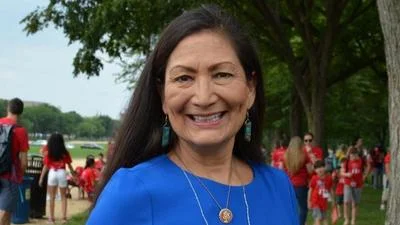Ariana Marmolejo Regional Communications Strategist (West) | Common Cause New Mexico
New Mexico is preparing for its general election with a focus on ensuring the integrity and security of the voting process. Common Cause New Mexico has outlined measures to safeguard the election, emphasizing voter eligibility and ballot security.
To vote in New Mexico, individuals must register by attesting to their U.S. citizenship and state residency. Although voter ID is not required at polling stations, identification is necessary for registration. Those who vote falsely face a fourth-degree felony charge.
The NM Voting Rights Act of 2023 permits former inmates to vote post-release, even if they are on probation or parole. A Santa Fe judge recently ordered the law's implementation following bureaucratic delays.
County clerks across New Mexico undertake rigorous preparations for elections, including training poll workers and verifying machines and voter lists. "EXTREME SECURITY MEASURES" are in place to prevent tampering with voting or tabulation processes. Chain of custody procedures document the movement of election materials, while some counties employ private security firms to monitor ballot boxes overnight.
Paper ballots are used statewide, allowing audits and recounts if necessary. The process involves recording results at polling places, counting them at county clerk offices, and updating them online through the evening.
After an election, results undergo canvassing first at the county level before moving to state-level certification by a new team of staff. An independent contractor audits results before they reach the New Mexico State Canvassing Board for official declaration.
State law dictates specific timeframes for these processes: county canvassing boards must meet within six to ten days post-election (up to 13 days in larger counties) to declare results. The state canvassing board declares certain office results on the third Tuesday after an election.
Counties cannot refuse certification; Otero County faced legal action when it attempted this in 2022. Close races may trigger automatic recounts based on margins set by law—0.25% for federal or statewide races, 0.5% for district attorney or local questions, and 1% for other offices.
Common Cause remains committed to fostering democratic values through transparent governance and equal representation.
___









